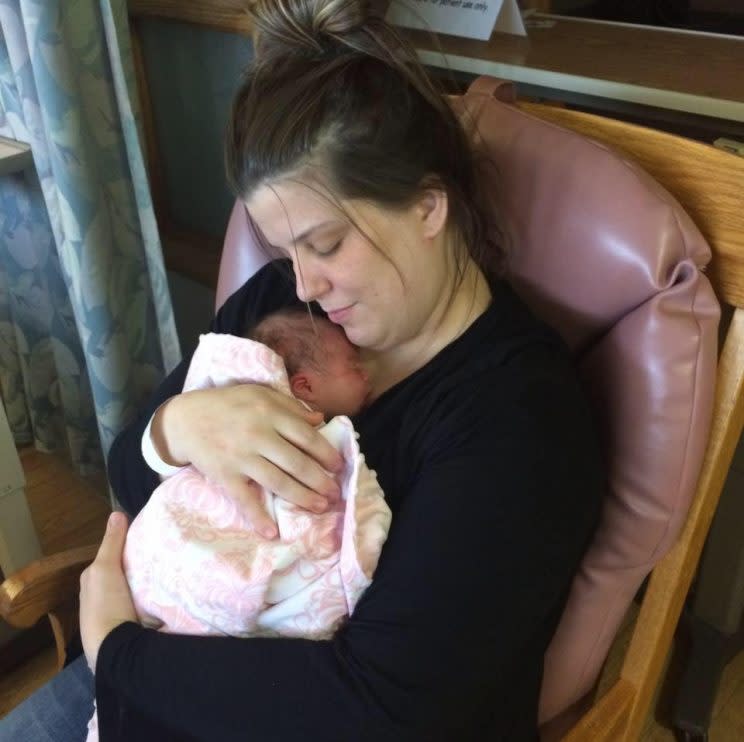Pregnant Women, Beware: If You Have Major Itching, It Could Be Deadly

A pregnant woman who had complained of intense skin itching on Facebook was smart not to keep it to herself — as her post sparked enough concern to get the mom to the doctor, where she learned she had a disorder that could’ve cost the life of her baby.
“If you’re pregnant & you’re itching REALLY bad, don’t ignore it!!” warned Christina DiPino in a March 28 post that has since been shared more than 26,000 times and sparked more than 4,000 comments. “Started having severe itching a few weeks ago, (it was keeping me up at night) thanks to a little Facebook complaining & the urging of Jennifer, Britney & Monica, I got the itch checked out & found out I had pregnancy Cholestasis, which is basically harmless for me — except for the crazy itching — but could have caused a still born after 37 weeks!!”
Along with her warning, DiPino shared two happy postpartum photos with her newborn daughter, as well as a link to the website for ICP Care, a nonprofit organization offering support and education around intrahepatic cholestasis of pregnancy (ICP), which was her official diagnosis. According to the website, it’s actually a group of liver disorders specific to pregnancy; it interferes with the flow of bile, which aids in the digestion of fats. This leads to the buildup of bile acids in the blood, increasing the risk to the fetus.
Because ICP is a group of disorders, it can appear in many different forms, with 80 percent of cases diagnosed in the third trimester, about 10 percent in the second trimester, and another 10 percent in the first trimester, though some have been diagnosed as early as eight weeks into a pregnancy.
While the main symptom is intensely itchy skin — particularly on hands and feet, though some women may feel it on their arms or legs or all over, and it doesn’t respond to antihistamines — other signs, according to the website, include dark urine, pale stool, pain in the upper-right quadrant, fatigue, and mild depression. Genetics, hormones, or environmental factors, although it’s not entirely clear which, can trigger ICP.
If not treated, either with early delivery (when possible) or drugs, particularly ursodeoxycholic acid, which is a naturally occurring substance in the body and has been deemed safe for both mom and baby, there are various risks, ranging from preterm labor and fetal distress to maternal hemorrhage or even stillbirth.
DiPino was lucky to have friends step in, as she notes in her post.
“I was officially diagnosed last week and had to get her out this week! We are so blessed!” she said. “Thanks guys for giving some amazing advice which may have just saved our precious girl’s life! Yeah we are SO BLESSED & in awe!!!” She added, “Now I will be the crazy lady running around telling all the preggie ladies to beware!”
Warning other women is a very good thing, even if judging solely by the responses to DiPino’s post, which range from support and appreciation to a surprising number of comments about women who can relate.
“I had this with my last pregnancy and didn’t catch it til 39wks,” one woman wrote. “My son passed away from SIDS 5 wks later and they think the ICP had something to do with it. I now am 34 wks pregnant have ICP again and will be having a C-section at 37wks on the 25th!”
Another noted, “I had this most likely with first 2 pregnancies but undiagnosed… Congrats on your baby and so glad she’s healthy,” and yet another shared, “I had this with my son from 36 weeks and they induced him so quickly so glad they did.”
Read more from Yahoo Style + Beauty:
Follow us on Instagram, Facebook, and Pinterest for nonstop inspiration delivered fresh to your feed, every day. For Twitter updates, please follow @YahooStyle and @YahooBeauty.

